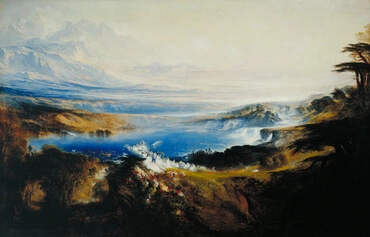Heaven

Heaven" and "heavens" are used many times in the Bible, with a couple of variations of meaning. Sometimes it is relatively literal, including times when the Lord is identified with it (“Our Father, who art in the heavens,” for instance), meaning heaven as the eternal home for people who chose to do what is good in this life and let the Lord lead them to a love of being good. In other references, particularly when it is paired with “earth” or other lesser ideas (“In the beginning God created the heavens and the earth,” for instance), “heaven” or “heavens” means our internal life as opposed to our external life. In a way, these two meanings are really the same. If you think about the importance of your deepest thoughts and feelings, you can see that they are the “real” you, much more so than your body is. The relationship between the spiritual world and the natural world is similar; the spiritual world is the “real” one, and controls the natural world the same way our thoughts and feeling control our actions. So in both cases, “heaven” describes a deeper reality that we will enter fully after we die.
This video is a product of the New Christian Bible Study Corporation. Follow this link for more information and more explanations - text, pictures, audio files, and videos: www.newchristianbiblestudy.org
This video is a product of the New Christian Bible Study Corporation. Follow this link for more information and more explanations - text, pictures, audio files, and videos: www.newchristianbiblestudy.org
Prophet
The idea of a "prophet" is very closely tied to the idea of the Bible itself, since the Bible was largely written by prophets. At a lower level, prophets represent people who teach from the Bible. At a higher level, they represent the Lord as He reveals himself through the Bible. Viewed in a abstract way, prophets represent the holy parts of the Bible themselves, and also represent doctrine drawn from the Bible. The reason we say "largely written by prophets" and "the holy parts of the Bible" is that not all of the books currently included in the Bible have a complete and continuous internal sense. Some -- like Job, Ruth, and Song of Solomon -- are wonderful literary pieces that got included, but which lack the systematic meanings for words and phrases. Others -- the Acts and Epistles, primarily -- are really doctrinal works, the first attempt by others to extract meaning from Jesus' life and words.








